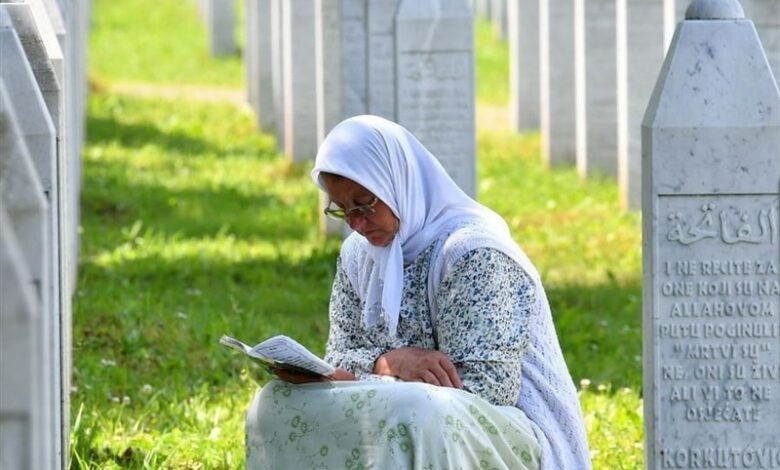Russia’s opposition to the UN draft resolution on Srebrenica

| The permanent representative of Russia in the United Nations criticized the draft resolution of the General Assembly "on the Genocide in Srebrenica" put forward by the Western countries and called it "one-sided and caused by certain political desires" whose approval could have consequences in the world. be |
According to the report of the international group Tasnim news agency quoting “Interfax” news agency, Vasily Nebenzia, Russia’s permanent representative to the United Nations, announced last night at the Security Council meeting that the resolution of the United Nations General Assembly “on the genocide in Srebrenica” proposed by a number of Western representatives aims to continue the memory of the victims of the events of the year 1995, so Russia opposes this draft.
The diplomat explained: “The draft resolution proposed by the Westerners on Srebrenica is one-sided and politically charged. and has nothing to do with the stated goal of perpetuating the memory of the victims of the 1995 disaster in order to achieve national reconciliation. It is obvious that the authors want to confirm in the form of a document of the General Assembly (UNGA) the jurisdiction of the historical events that only serve their interests.” Nebenzia also emphasized that The purpose of presenting this document is not to promote ethnic reconciliation in Bosnia and Herzegovina. According to him, the adoption of this resolution can provoke a “chain reaction around the world”. He added: “The wounds of the Bosnian society are very fresh and the problems in this country are too serious to introduce this bill in the General Assembly. The people of Bosnia and Herzegovina must first come to a consensus on their own assessment of history. We are firmly against this document and we ask all countries with common sense to do the same.”
According to some political experts, the recognition of genocide in Srebrenica in the resolution proposed by the West in the United Nations General Assembly and the prohibition of denying it is an exclusively political action whose purpose is to convince the world of the desired point of view of the Western countries, and for this purpose, expressions have been used that refer to the cases of genocides in different periods of history. It is particularly linked by Germany and Rwanda.
Earlier, in mid-April, the former prime minister of Serbia and the speaker of the country’s parliament announced that Belgrade intends to oppose the adoption of the resolution on the genocide in Srebrenica. In addition, in Republika Srpska, which is part of Bosnia and Herzegovina, a rally was held against the relevant draft resolution in the UN General Assembly.
end of message/
| © | Webangah News Hub has translated this news from the source of Tasnim News Agency |


